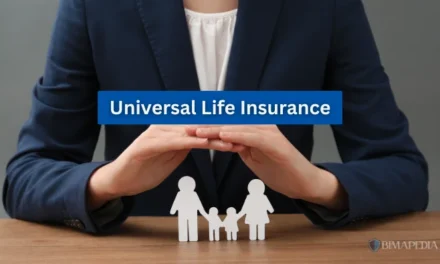Life Insurance for Seniors: How to Cover Funeral and Final Expenses
As seniors age, managing end-of-life expenses becomes an important consideration. One of the most effective ways to address these costs is through life insurance. Life insurance can help cover funeral expenses, medical bills, and other financial obligations, relieving your loved ones of these burdens.
In this article, we will discuss life insurance options available to seniors, including term and whole life policies, and answer some frequently asked questions to provide a clearer understanding of your options.
Types of Life Insurance For Seniors
There are several types of life insurance policies available for seniors, each offering different benefits and costs.
Term Life Insurance
Term life insurance provides coverage for a specific period, such as 10, 20, or 30 years. For seniors, the term might be shorter, often available for 10 or 20 years. Although this kind of policy is less expensive than permanent life insurance, it expires at the end of the term.
It’s ideal for seniors who want coverage to protect their family or estate from specific financial burdens like end-of-life expenses and debts.
Whole Life Insurance
Whole life insurance is a type of permanent insurance that provides coverage for your entire life as long as premiums are paid.
In addition to offering death benefits, whole-life policies also build a cash value over time that can be borrowed against or withdrawn if needed.
Although whole life insurance costs more than term life insurance, it provides lifetime protection and the potential to build up cash value.
Final Expense Insurance (Burial Insurance)
Final expense insurance, often called burial insurance, is designed to cover the costs of funerals, medical bills, and other end-of-life expenses.
The coverage amounts are generally smaller than those of term or whole life insurance policies, typically ranging from $2000 to $50000.
This policy is often an affordable option for seniors because it doesn’t require a medical exam, making it easier to qualify for.
Guaranteed Issue Life Insurance
Guaranteed-issue life insurance is a type of permanent coverage that requires no medical exam or health questions.
Seniors are often attracted to this policy because it offers guaranteed acceptance. In contrast to other forms of insurance, the death benefit could be smaller, and the premiums are typically greater. Usually, two to three years must pass before full death benefits are disbursed.
Universal Life Insurance
A flexible type of permanent life insurance that allows policyholders to adjust premiums and death benefits.
Like whole life insurance, it accumulates cash value. It offers flexibility in premiums and death benefits, along with potential cash value accumulation. However, it can be more complex to manage, and premiums may rise as the policyholder ages.
Comparison Table: Life Insurance Options for Seniors
| Policy Type | Coverage Length | Medical Exam Required? | Cash Value | Typical Use | Affordability |
|---|---|---|---|---|---|
| Term Life Insurance | 10–30 years (shorter for seniors) | Often yes | No | Covering temporary debts, income replacement | Most affordable |
| Whole Life Insurance | Lifetime (as long as premiums are paid) | Usually yes | Yes | Lifelong coverage, estate planning | More expensive |
| Final Expense Insurance | Lifetime | No | No (or minimal) | Covering funeral and burial costs | Affordable for small needs |
| Guaranteed Issue Life Insurance | Lifetime | No medical questions or exams | No (or minimal) | Coverage for those with health issues | Higher premiums |
| Universal Life Insurance | Lifetime (flexible) | Usually yes | Yes | Flexible coverage & investment | Varies, may increase with age |
Why Life Insurance Is Important for Seniors
As seniors approach the end of life, having a life insurance policy can help ensure that their financial responsibilities are taken care of. Here are a few key reasons why life insurance is crucial for seniors:
Covering Funeral Costs
Funerals can be expensive, with costs often ranging from $7000 to $12000 or more. Life insurance helps ensure that your family doesn’t bear the burden of these costs during a difficult time.
Paying Off Debts
If you have outstanding debts, such as a mortgage or personal loans, life insurance can help pay them off, ensuring your family doesn’t inherit your financial obligations.
Providing Financial Peace of Mind
Life insurance helps provide peace of mind by knowing your family is financially protected in case something happens to you. Seniors often worry about leaving their loved ones with financial hardships, and life insurance can address this concern.
Leaving a legacy
Seniors who want to leave a legacy for their children, grandchildren, or preferred charity may decide to purchase life insurance. This ensures that your family or causes you care about will receive a financial gift.
How Much Life Insurance Do Seniors Need?
The amount of life insurance required varies according to individual circumstances. For seniors, the most important factor is often covering end-of-life expenses, which might include:
- Funeral and burial costs
- Medical bills or outstanding healthcare expenses
- Estate taxes
- Any remaining debt (mortgage, credit card debt, etc.)
A general rule of thumb is to buy enough life insurance to cover these costs and leave a small amount for loved ones if desired. Many seniors opt for a policy in the range of $500 to $50,000.
Conclusion
An affordable way to pay for final expenses and give loved ones financial stability is through senior life insurance. Elderly people can make sure that their loved ones aren’t left bearing the burden of funeral expenditures and other last expenses by selecting the appropriate coverage.
Whether through term life, whole life, or final expense insurance, there are options available to suit the unique needs of seniors, offering peace of mind during their later years.
No matter your health or budget, there’s likely a life insurance option that can provide peace of mind for you and your family.
FAQs
Below are some frequently asked questions to help you better understand life insurance options for seniors.
What is the Best Life Insurance for Seniors?
The best life insurance for seniors depends on their health, financial situation, and coverage needs. For those looking for affordable premiums and simple coverage, final expenses insurance may be the best option. For seniors in better health, a term or whole-life policy may provide more comprehensive coverage.
Can I Get Life Insurance if I’m Over 70?
Yes, many insurance companies offer policies for seniors over the age of 70, including final expense insurance, guaranteed issue life insurance, and whole life insurance.
Can I Use Life Insurance to Cover Funeral Costs?
The purpose of life insurance, particularly final expense insurance, is to pay for burial charges and other final expenses. The death benefit can be used for funeral services, medical bills, and debts.
Can Seniors Get Life Insurance if They Have Pre-Existing Conditions?
Yes, seniors can still qualify for life insurance even with pre-existing conditions, though it may be more expensive. Guaranteed-issue life insurance is available for those who may have difficulty qualifying for other policies, but it typically comes with higher premiums.
Can I Change My Life Insurance Policy if My Needs Change?
Yes, certain types of life insurance, like universal life insurance, offer flexibility, allowing you to adjust your coverage and premiums as your needs change.
How Quickly Will Beneficiaries Receive the Death Benefit?
The payout time can vary, but most life insurance companies process claims within 30 to 60 days after receiving the necessary documentation.
How Much Does Life Insurance Cost for Seniors?
Seniors’ life insurance rates differ depending on the policy type, level of coverage, and health of the policyholder. For example, final expense insurance can cost anywhere from $20 to $100 per month, depending on the coverage amount and the applicant’s health.
Do Seniors Need a Medical Exam to Get Life Insurance?
Not all life insurance policies require a medical exam. Final expense insurance and guaranteed issue policies typically don’t require a medical exam. However, for other types of policies, like term or whole life insurance, a medical exam may be required.
Can Seniors Apply for Life Insurance Online?
Yes, many life insurance providers allow seniors to apply for coverage online, especially for policies like final expense insurance.
Can Seniors Purchase Life Insurance Without a Medical Exam?
Yes, a medical examination is not necessary for certain life insurance policies, such as guaranteed issue and final expense insurance. However, they may have higher premiums or limited coverage.







Recent Comments